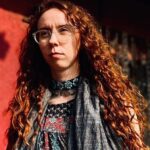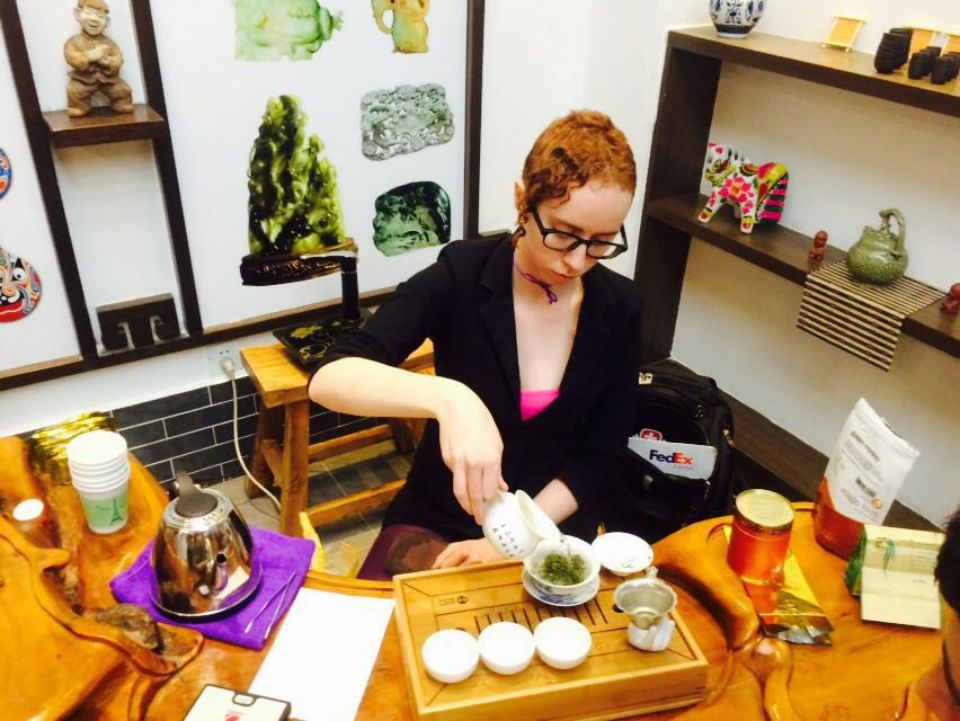
Traveling abroad can be an immensely rewarding experience. Learning a new language, immersing yourself in your host cultures, and exploring new environments can be beneficial to your sense of open-mindedness, diversity, adaptability, and even career readiness. Yet opportunities to study and work abroad are not equally accessible to all. Fellowships like the Critical Language Scholarship Program (CLS), the Benjamin A Gilman International Scholarship, and the Fulbright English Teaching Assistant Award (Fulbright ETA) are among some of the top programs specifically designed to help American citizens access these experiences and develop themselves as global citizens.
We were delighted to speak with Anesce Dremen, a multi-fellowship winner who has thoroughly utilized her experiences to develop a uniquely creative life. In this interview, she shares with us how she became interested in Chinese language and culture, how the fellowships enabled her to travel and study in China and India as a first-generation low-income student, and her best fellowship application advice.
Tell us about your background and academic journey. What led you to be interested in Chinese language study and apply to the Critical Language Scholarship?
After reading “Snow Flower and the Secret Fan” by Lisa See during the summer before I began high school, I wanted to learn more about Chinese culture and language. I self-studied the language for two years before I had the opportunity to enroll in a language class. When college began, I immediately knew that I wanted to declare one of my majors as Chinese (the other was in English literature), as I wanted to combine my love of literature with my curiosity for China.
In college, I enrolled in Chinese 201 and became quite involved with the student org, Chinese Club. In my first semester, I visited the study abroad office with a list of questions to figure out how to spend as much time as possible in China. However, I needed immense financial support in order to make studying abroad feasible.
With the support of two fabulous mentors, I applied for several scholarships to study abroad. Originally, I hadn’t considered applying to the Critical Language Scholarship because it was government-funded, highly selective, and I didn’t think I’d be good enough. At that point, I had already been rejected by hundreds of external scholarships for college – I didn’t yet know how to craft a successful application essay. Thankfully, a CLS alumni ambassador held a presentation at Carthage and agreed to meet me for lunch afterward to talk about his experience. Between his, as well as our campus’ CLS advisor’s encouragement, I struck up the courage to submit an application.
The application process was very humbling in that it was my first time sharing my writing and receiving feedback on it for revision. Until then, I had been quite possessive about anything I wrote (to the extent of locking up my writing inside a notebook with a literal lock and key). I had to release my fears and be humble to learn how an essay I thought was pretty well-written in fact needed to be completely revised (again and again).
As part of your first Critical Language Scholarship, you studied at Shaanxi Normal University in an eight-week program and undertook the Mandarin Language Pledge. Can you describe what a week in the life of this fellowship was like?
For the Critical Language Scholarship, we had a rather intense schedule: 20 hours of language instruction, a culture class that met thrice a week (we could choose from newspaper, business, or pop media – I chose newspaper), met a language partner for an hour twice a week, and then had a few weekend cultural excursions arranged by the program. In the evenings, we would complete homework (typically learning anywhere between 20-50 characters a day, 6 grammar patterns a week, and writing an essay with an increasing word count due each Friday).
After finishing homework, I would venture out into the community to practice my Chinese. Once I realized there was a tea mall about a five-minute walk from our university, I started spending many evenings there: sipping tea, discussing their tasting notes and manufacturing processes, and answering curious questions that the tea shop owners had about America. Back then, I did it for the sheer love of tea but in hindsight, these experiences have influenced my work and specialization in tea as a writer now.
The Mandarin language pledge was the best aspect of the scholarship, as it required total immersion. When I started the program, I was at an intermediate-low proficiency and tested out at advanced-low by the end of eight weeks. The advantage of the pledge is that it forces you to communicate exclusively in Chinese, which builds the skill to think solely in Chinese.
CLS influenced the remainder of my undergraduate career greatly: after this program, I studied for three more semesters in different cities in China. With advanced proficiency, I could be much more involved with my host communities.
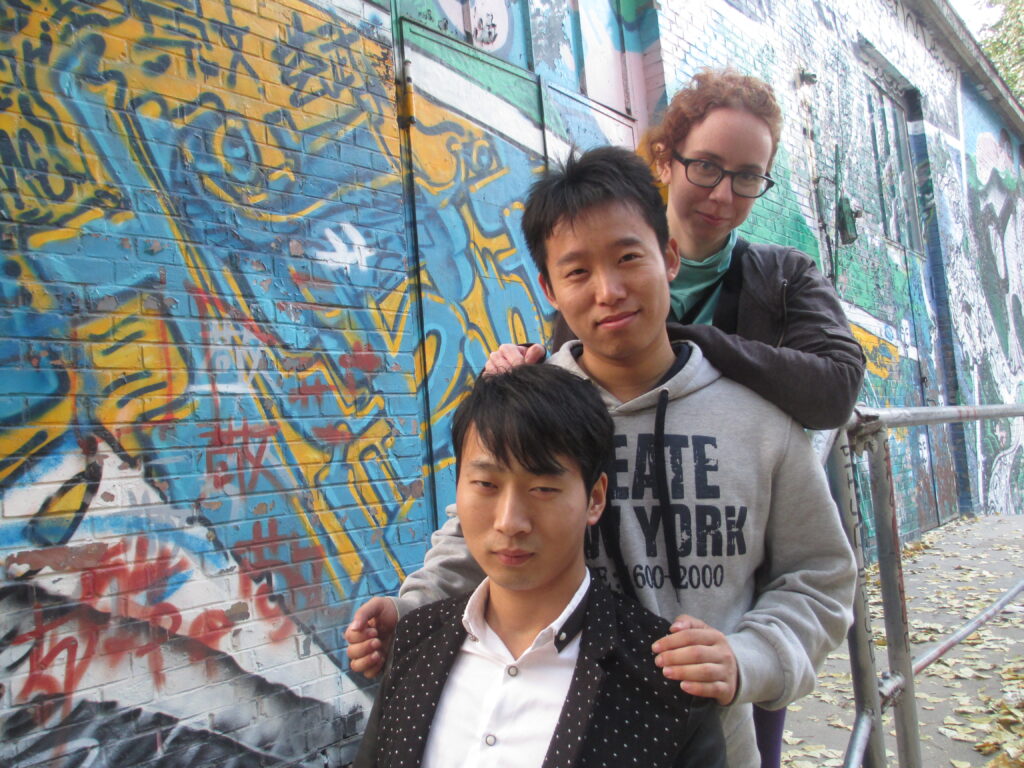
During your third year of college, you received the Benjamin A Gilman scholarship. What motivated you to apply for the fellowship?
I applied to Gilman because I qualified for the need-based element. The Gilman scholarship allows those of us from low socio-economic backgrounds (those who receive the Pell Grant) to have the opportunity to study abroad. Furthermore, Gilman offers additional money to those studying critical languages. Without the funding, I would not have been able to afford the two semesters abroad in between my Critical Language Scholarship experiences.
Originally, I doubted whether I could win a scholarship (when I applied to college I had received hundreds of external scholarship rejections and I felt overwhelmingly unworthy and simply not good enough). However, my college’s study abroad coordinator greatly encouraged me to apply. I feel like that has been a denominator in my life – professors and teachers understood and encouraged me when I deeply doubted myself.
A wonderful piece of advice that my CLS/Fulbright advisor shared was something that I have carried forward in all that I apply to now: “Don’t self reject.” He shared how we should always submit an application because you never know what will happen, and “the worst that can happen is you learn a little bit more about yourself in the application process. That isn’t so bad, is it?”
My advice to anyone reading this article and debating about whether or not to apply to a scholarship or fellowship: just try. Absolutely try, and seek reliable advice for help (study abroad advisor, fellowships advisor, the writing center, etc). There are also Facebook applicant groups with alumni present which are helpful. You can also check out the program’s official website and see what online or in-person recruiting events are happening – do try to connect with the program, as learning holistically about the program and its values will allow you to better envision yourself as a selectee (which can help in the application process).
The Gilman scholarship empowers US students to take on internships and study experiences abroad that will strengthen their professional skills. How did the Gilman fellowship support your experience abroad?
I studied abroad with Gilman in Beijing at Peking University with CIEE. Unbeknownst to me at the time, I would later go on to work as a program leader with CIEE. Studying abroad in multiple cities, which was only possible because of these scholarships, gave me a unique and more comprehensive understanding of the complexity of China and its many cultures as well as strengthening key soft skills within myself: flexibility, intercultural communication, Chinese language skills, and creative expression. This has been an advantage for my career working in international education.
You later received a second Critical Language Scholarship to study advanced Chinese at Soochow University. What did you hope to get out of this secondary program? How did you adapt your application to be competitive the second time around?
By the time I completed my first Critical Language Scholarship, I had gained advanced proficiency in Chinese. However, I knew that I needed to write a thesis entirely in Chinese for my graduation requirement. The best way to prepare was to spend additional time in a Mandarin-speaking region and to continue on a journey of language and culture learning.
To be more competitive the second time, I portrayed myself as honestly as possible. I understood it’s more difficult to receive a second Critical Language Scholarship (honestly, why should the Department of State spend additional money on the same candidate when they could fund an entirely new student?) In my application, I wrote anecdotes about studying abroad which demonstrated how I prioritized connecting with my host cultures, how I intended to continue that with a second opportunity, and how the financial aspect was crucial for me. What’s essential in a successful CLS application is connecting the study/work you do now, to CLS, and to the future. I envisioned a second CLS helping with my long-term goals.
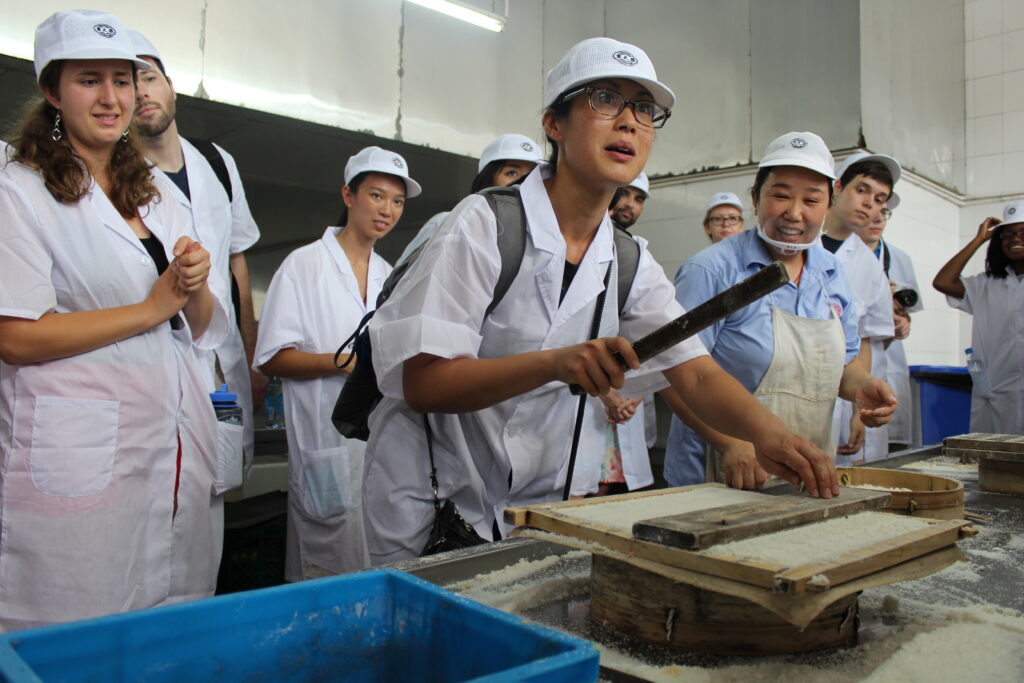
Tell us about your second Critical Language Scholarship experience in Suzhou. What was this fellowship like? How did you think your first fellowship helped prepare you to make the most of your second one? How did this experience influence the rest of your undergraduate career?
While the base of the program was the same (20 hours of weekly language instruction, a culture class, language partner interaction, and cultural excursions), I found more flexibility in navigating my second Critical Language Scholarship, simply for the fact that I was in an advanced-level course. Instead of focusing the majority of my time learning vocabulary and grammar, our class was focused on the nuances of writing compelling essays, giving speeches, and debating in class.
As someone who had also been living in China for eleven months, I was no longer intimidated to explore the city on my own. I utilized this time to travel to nearby Yixing (a city renowned for its specialized teaware), spent a significant amount of time in tea shops, and felt very comfortable making friends with locals. And, I utilized the time to brainstorm ideas for two of my three theses: I selected the text for my English literature thesis based on an interaction with a bookshop owner in Suzhou; this thesis was published in an undergraduate research journal and selected for presentation at the National Conference on Undergraduate Research. My Chinese thesis was a ten-page collection of short stories written in Chinese about my interactions with tea in China.
During my last semester in college, I was selected as a CLS Alumni Ambassador, and invited to travel to Washington DC for an orientation. This week would end up being formative for my life: while traveling to DC, I met a stranger (now a friend) who is responsible for my interest in coming to India, as well as connected with Helen Jiang (another alumni ambassador) who I would collaborate with to co-organize and co-host a networking event at the United Nations headquarters in NYC. It was because of that event that I shifted to NYC after graduation.
I can confidently say that studying abroad with the Critical Language Scholarship and participating in CLS-related events has absolutely influenced my academic, personal, and professional growth. In summary, through CLS, I realized that studying abroad wasn’t a once-in-a-lifetime opportunity – I could leverage my experiences intentionally to make a meaningful, international career. I will always be thankful for the opportunities afforded by this program.
You recently completed a year as a Fulbright-Nehru English Teaching Assistant. What inspired you to apply for this fellowship at this point in your career? How did this fellowship advance your personal and career goals?
I applied to be a Fulbright ETA, as I wanted to contribute to a community as a teacher and I was ready to get outside of my comfort zone. During my application, I had not yet visited India. I felt very comfortable in my career in China, and believed that the next stage of my life should challenge me creatively, culturally, and linguistically. Furthermore, I wanted to serve as a teacher. Three teachers/professors have been instrumental in my growth as a scholar and as a human; I wanted to honor and pay forward what they have given me by teaching in a non-elite school in India.
I was awarded a Fulbright ETA to begin in 2020, but it was deferred for two years due to the pandemic. In between that time, I had already paused my career in international education and traveled to India for the first time as a budget backpacker to pursue writing as a career when I became stranded. By the time Fulbright began, I had a much different perspective on India, wanted to incorporate as much creativity into my classroom as possible, as well as had a more defined perspective on how to utilize my time to connect to my host community.
During Fulbright, I connected with literary and writing communities in India: I joined a book club in Kolkata, attended literary festivals and book launches, met beloved writers/friends across India through The Quarantine Train, hosted monthly writing sessions and tea parties in Kolkata, and taught creative writing workshops in cities I visited. Works that I wrote or edited during that time were also published: a poem was selected for “Count Every Breath” an anthology on climate change, and a memoir vignette was published by Usawa. Following Fulbright, I am now finding the balance between my role as an educator and as a creative writer.
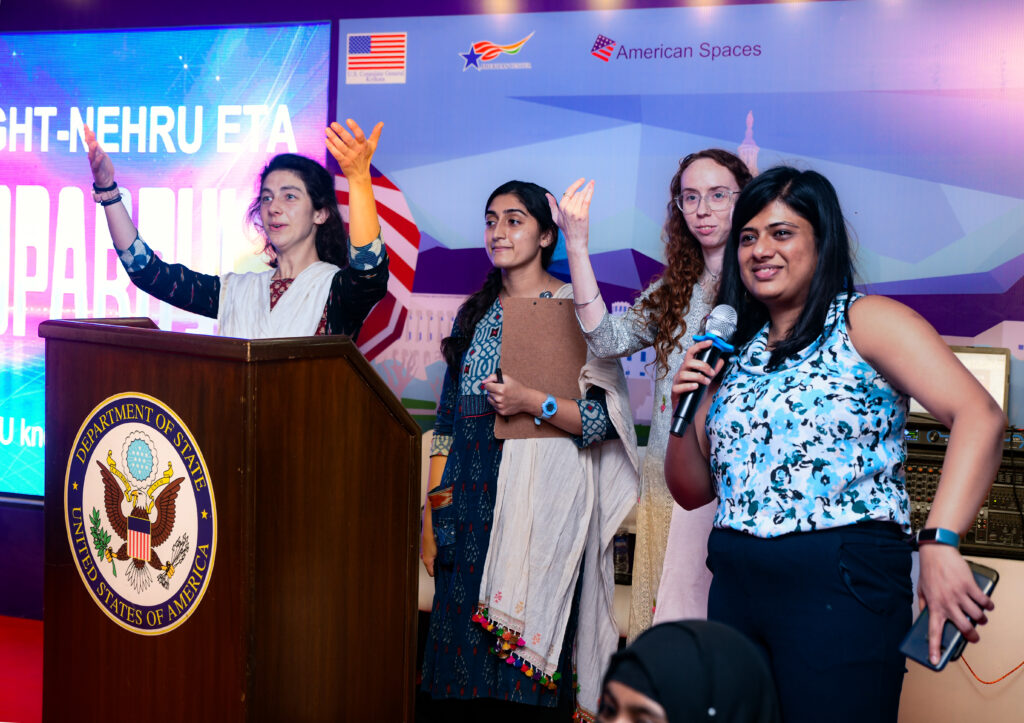
Having pursued multiple fellowships, how would you say that fellowships have shaped your outlook and experiences?
There’s an idiom in Chinese: 学无止境。There are no borders to learning. I have learned so much about the world as well as myself during these fellowship experiences. It has truly taught me that wherever I go, I will truly always remain a student.
As a first-generation low-income college student, these fellowships entirely changed my life. I would not have been able to study abroad nor gain advanced proficiency in Chinese had I not been a recipient of CLS and Gilman. Even as an alumna or as an alumni ambassador (‘17-18) I was granted opportunities to travel within the United States to places I otherwise didn’t have the budget to travel on my own; for example, I co-hosted a networking event for CLS alumni at the United Nations in NYC, spoke on an alumni panel in Washington DC, and attended the U.S. Future Leaders Topical Seminar: Entrepreneurship & Innovation in Colorado Springs. Then, of course, there are the direct career impacts: I have worked in several jobs where Mandarin is used for communication, have ghost-translated articles, or put to use intercultural communication skills.
Furthermore, I have taken several cherished memories from these scholarships/fellowships and distilled them into writing which has been accepted for publication: I wrote about massages I experienced during CLS and Gilman in “Hairline Movement” – an essay included in Stillhouse Presses’ anthology “In Between Spaces.” One of those tea mall stories in Xi’an is published in Global Tea Hut. And I wrote briefly about my Fulbright experience for SPAN Magazine (the magazine of the US Embassy in India). These are just the first of many writings that will feature my international exchange experiences.
Finally, what advice would you give to someone who’s inspired to apply for multiple fellowships?
Apply to everything you are eligible for. Know that rejection is inherently more than acceptance. I’ve been rejected by hundreds of more scholarships than the few that I’ve been accepted by. In the words of my wise Fulbright/CLS advisor: “a rejection isn’t a rejection forever. It might just be a ‘not right now.’” If you’ve been rejected once by a scholarship or fellowship and it aligns with your values, absolutely reapply. Career-wise, navigating applying to scholarships and fellowships has better prepared me to navigate frequent rejection as a writer. Even if you aren’t aware of it yet, the skills you gain in crafting a personal statement and editing it to an appropriate word count are skills that will help you in other aspects of life.
Interested in applying to any of the fellowship programs mentioned in this interview? Sign up to discover and bookmark more than 2,600 professional and academic fellowships in the ProFellow database!
Anesce Dremen is a writer and educator. A first-generation college student and domestic violence survivor, Anesce Dremen studied in four cities in China with the support of the Critical Language Scholarship and the Gilman Scholarship. She graduated from Carthage College with degrees in Chinese and English literature. Anesce was a 2022-23 Fulbright-Nehru ETA in India. Her work has been published in Stillhouse Press, SPAN Magazine, Persephone’s Daughters, The Bombay Literary Magazine, Tea Journey, and Shanghai Poetry Lab, among others. Anesce is often found with a tea cup in hand, traveling between the U.S., China, and India.
© 2023 ProFellow, LLC, all rights reserved.
